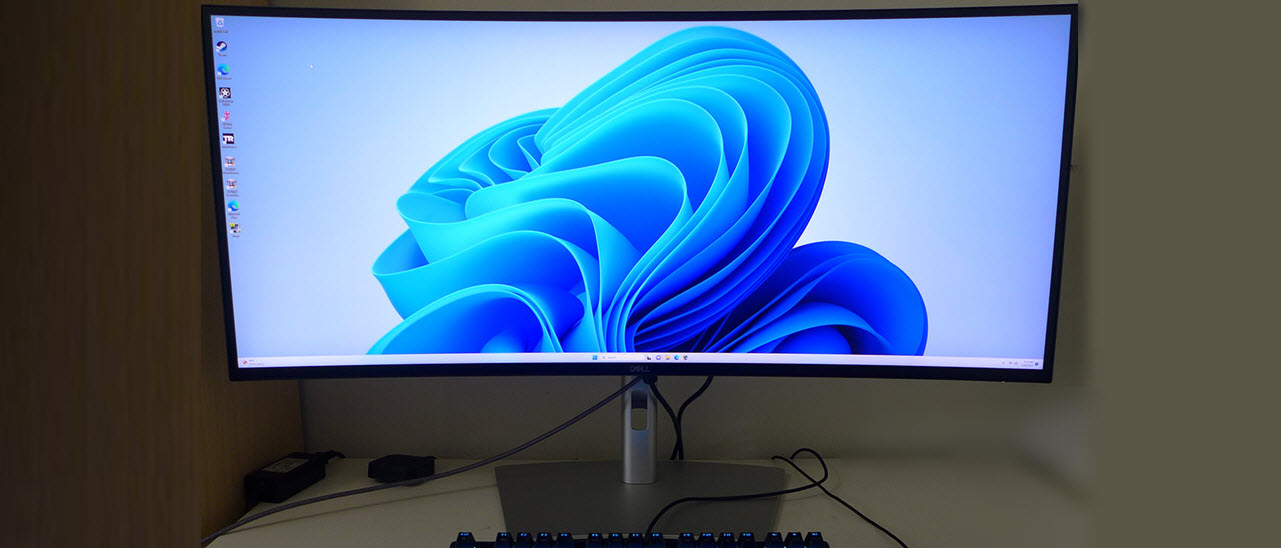Why you can trust Tom's Hardware
To read about our monitor tests in-depth, please check out Display Testing Explained: How We Test PC Monitors. We cover brightness and contrast testing on page two.
Uncalibrated – Maximum Backlight Level
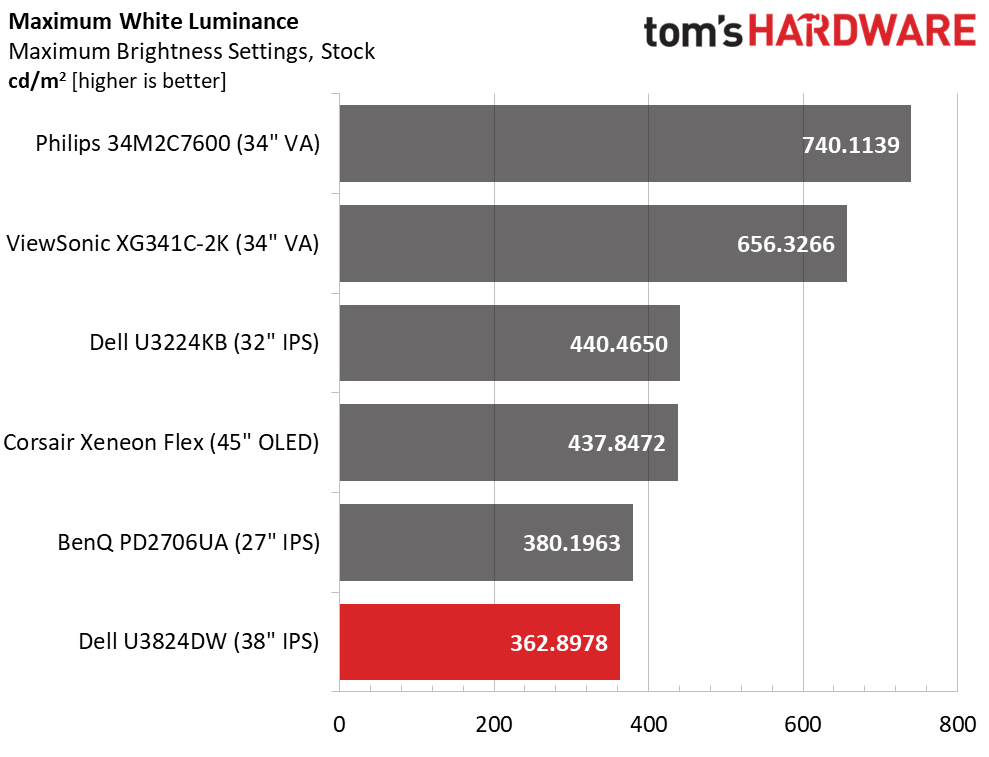
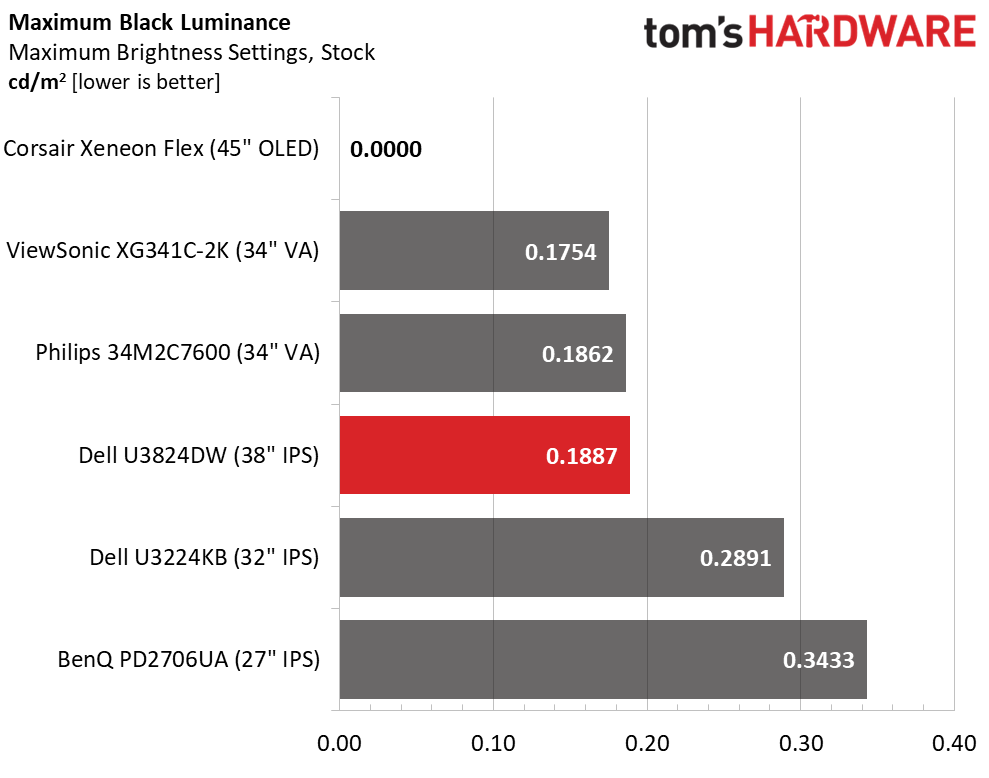
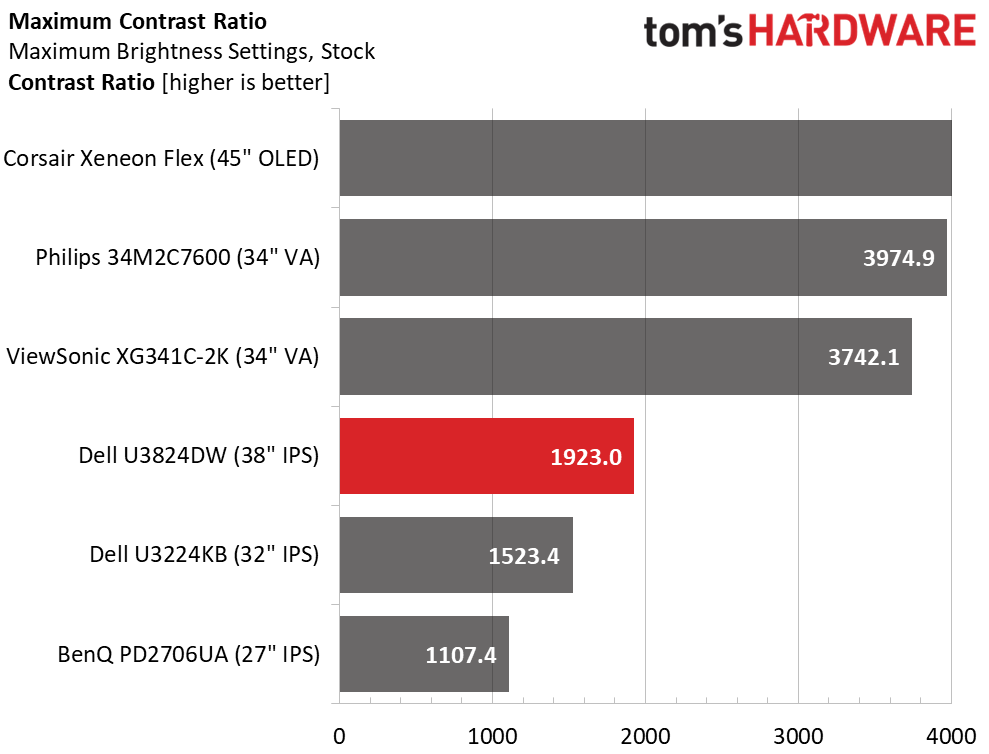
Finding the U3824DW’s maximum output level requires changing the picture mode from Standard to Custom Color. By default, I measured 253.2859 nits peak, .1479 nit black and 1712.2:1 contrast. Custom Color with no adjustments gave me the numbers shown above. If you need more than 250 nits, Custom Color can deliver, but you’ll need to calibrate as its white point is visibly green.
In every case, the U3824DW has more contrast than traditional IPS panels. Though not quite in VA territory, Dell’s IPS Black technology makes a visible improvement in image quality thanks to a greater depth of field and color saturation.
After Calibration to 200 nits
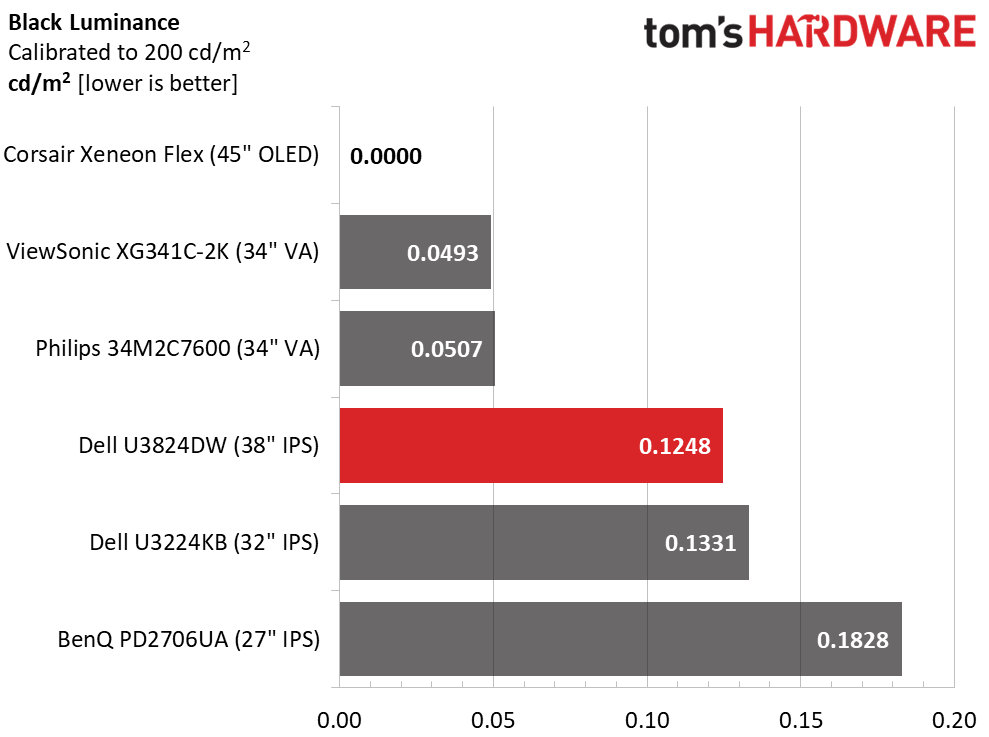
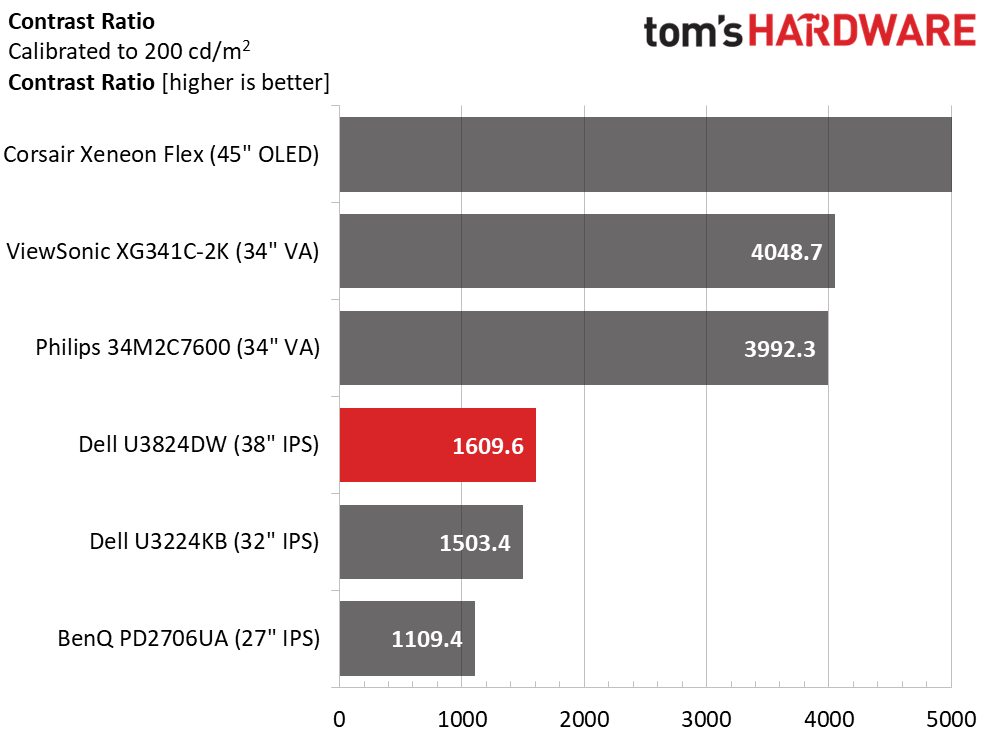
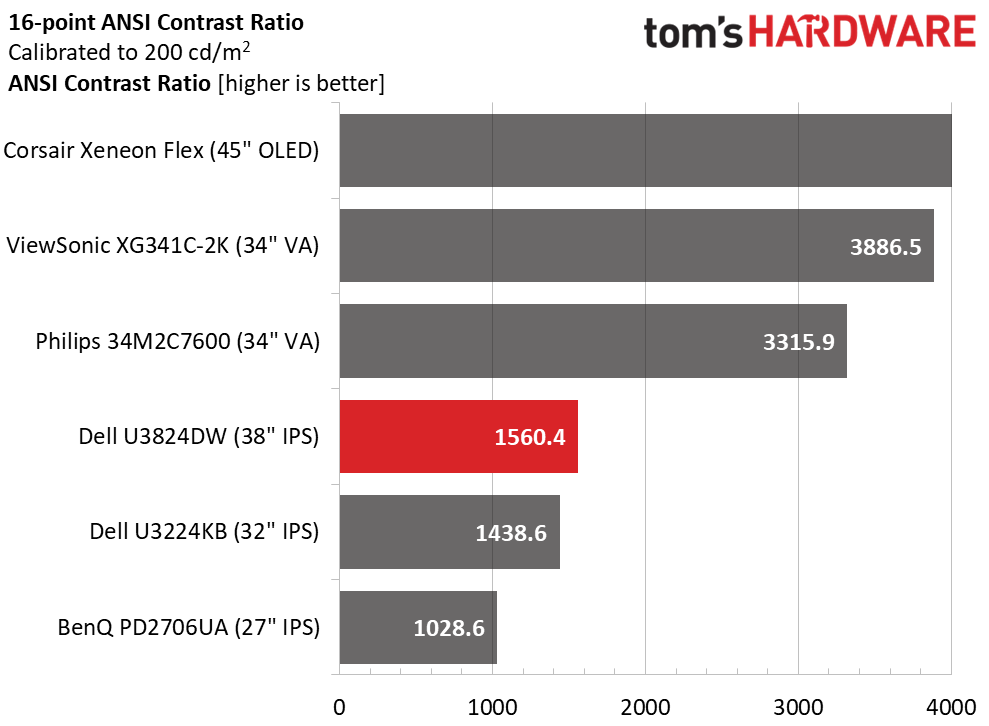
I calibrated the Custom Color mode and lost a little contrast. As I’ll show later, the Standard mode has no visible color errors, so there’s little point in calibrating the U3824DW.
You’ve likely already noticed that both Dell monitors in the group have superb contrast numbers. The U3224KB also has an IPS Black panel with a clear advantage over traditional IPS technology. We’re seeing an evolution here, for sure. The U3824DW has one of the best ANSI scores I’ve yet recorded for an IPS monitor.
Test Takeaway: You can almost hit Dell’s claim of 2,000:1 contrast by choosing the Custom Color mode. But without calibration, the image has a slight green tint. Calibration reduces contrast to 1609.6:1, so the best choice is to leave the U3824DW in its Standard mode, which has 1712.2:1 contrast, with no calibration required. It’s a compromise that ensures the best possible color accuracy.
MORE: Best Gaming Monitors
Get Tom's Hardware's best news and in-depth reviews, straight to your inbox.
MORE: How We Test PC Monitors
MORE: How to Buy a PC Monitor
MORE: How to Choose the Best HDR Monitor
Current page: Brightness and Contrast
Prev Page Response, Input Lag, Viewing Angles and Uniformity Next Page Grayscale, Gamma and Color
Christian Eberle is a Contributing Editor for Tom's Hardware US. He's a veteran reviewer of A/V equipment, specializing in monitors. Christian began his obsession with tech when he built his first PC in 1991, a 286 running DOS 3.0 at a blazing 12MHz. In 2006, he undertook training from the Imaging Science Foundation in video calibration and testing and thus started a passion for precise imaging that persists to this day. He is also a professional musician with a degree from the New England Conservatory as a classical bassoonist which he used to good effect as a performer with the West Point Army Band from 1987 to 2013. He enjoys watching movies and listening to high-end audio in his custom-built home theater and can be seen riding trails near his home on a race-ready ICE VTX recumbent trike. Christian enjoys the endless summer in Florida where he lives with his wife and Chihuahua and plays with orchestras around the state.
-
uwhusky1991 I don't quite understand the 3840X1600 UW monitor. This one is 38". There are a multitude of options in 4k 43" monitors which would be this monitor if the bottom 2 inches or so weren't cut off.Reply -
uwhusky1991 Reply
I guess I don't understand the value of this monitor. It's 38", 60hz, doesn't support freesync or g sync and is well over $1,000. I have a 43" Vizio 4k TV that I use as a monitor that is also 60 hz but at least it supports free sync and VRR and it was less than $250. A 38" 3840X1600 monitor is just my 43" monitor with the bottom 500 pixels chopped off and apparently an extra $1000. But it's curved so there's that.Tom Sunday said:All I can say is that I graduated from a straight 27-inch Dell 1920 x 1080 monitor to an Alienware 34 Curved QD-OLED Monitor at 3440 x 1440 in a ultrawide format. The upgrade was pure heaven for gaming and a feeling that my RTX 4090 would be much more appropriate. Thus in no time I got used to the larger 34-inch display and the Alienware monitor was truly a great design and looker. But on a pure whim and a 'nice-to-have' gesture my dad showed up with a 38-inch Alienware 3840 x 1600 pixel display with a much crisper specification and hoping to expand my gaming horizons even further. And it wasn’t even my birthday! Bottom-line I can now never go back to anything less than a 38-inch ultrawide panel as gaming was never any better. Much better then 34-inches any day and a bigger picture difference is felt immediately! The high resolution and a larger screen area is of course a big deal for me, whereby milliseconds never count! Will I ever move to increasing my screen size larger than 38-inches…probably not. It’s a sweetspot for me or at least for the time being! Now I am just hoping that Dad and Mom will get back together again!
